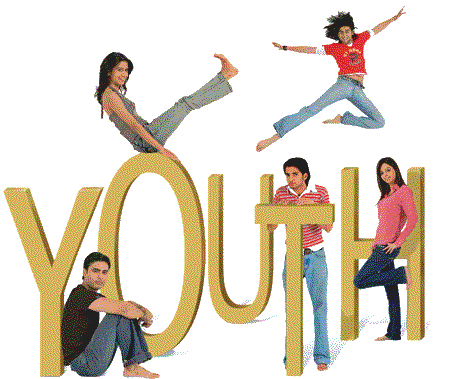Before I pen down my thoughts on civic sense and its importance, let me refer to article 51 (a) of our constitution which as we know are called the fundamental duties of the citizens of India.
The Fundamental Duties are defined as the moral obligations of all citizens to help promote a spirit of patriotism and to uphold the unity of India. Like the Directive Principles, they are not legally enforceable. Article 51 (a) of our constitution states:
It shall be the duty of every citizen of India –
- to abide by the Constitution and respect its ideals and institutions, the national Flag and the National Anthem;
- to cherish and follow the noble ideals which inspired our national struggle for freedom;
- to uphold and protect the sovereignty, unity and integrity of India;
- to defend the country and render national service when called upon to do so;
- to promote harmony and the spirit of common brotherhood amongst all the people of India transcending religious, linguistic and regional or sectional diversities; to renounce practices derogatory to the dignity of women;
- to value and preserve the rich heritage of our composite culture;
- to protect and improve the natural environment including forests, lakes, rivers and wild life, and to have compassion for living creatures;
- to develop the scientific temper, humanism and the spirit of inquiry and reform;
- to safeguard public property and to abjure violence;
- to strive towards excellence in all spheres of individual and collective activity so that the nation constantly rises to higher levels of endeavour and achievement.
If you paid close attention to each of the points you will notice that many of them are basic guidelines to uphold and value a set of principles in order to ensure proper conduct of the society in keeping with the nation’s goals and ideals. These points were deliberated and well thought out by the makers of our constitution and were included in the country’s fundamental governing document. Merely measuring ourselves on each of the above points of article 51 (a) will reveal the state of “civic sense” in the country.
So what is Civic sense?
Civic sense is nothing but ethics to be followed in public. But what are these ethics? We all have a generic idea about it. Most of us have a restrictive understanding of the term. But actually civic sense is not restricted to keeping the roads and streets clean and properly using and maintaining the public property. Its scope and dimensions are much more. To respect other fellow beings, abide by the laws, not resorting to unethical means in day to day activities, being considerate and tolerant towards others and the like are some of the examples of having a basic civic sense.
Do we care about civic sense in India?
Frankly speaking we’ve never been a nation that bothered much about civic sense. Often we’ve seen even the basic rules being flouted blatantly. Be it cleanliness or hygiene or even the manner of communication with others we are poor in it. We harp about our constitutional rights whenever we face some problem as a citizen but when it comes to playing our part for the benefit of the whole, either we don’t pay attention or quietly complete our own work and move on, consoling ourselves with the thought: this isn’t our job. Someone else is responsible for it.
But have we ever stopped and wondered whose job is it? Will the mess be sorted out? What if things don’t improve? Will I not suffer? What about our children and their future? How would they learn to take responsibility? And most of all who needs to take the first step against deadlock situations, anti social elements, corruption and inefficiency which is harming our nation gravely?
The recent spate of horrendous acts of crime and corruption on one hand and the breakdown of law and order on the other clearly shows that we as a society are becoming completely insensitive towards other fellow beings. All that we care for is to somehow (by hook or by crook), get our own jobs completed and move on. Let the others suffer or find their own solutions. It’s none of our business. It’s the government’s business. Blame the police, the judiciary and the politicians.
That’s where we are wrong! We are as much to be blamed. And everything that happens within the country affects us. All of us directly or indirectly benefit when we act responsibly and show compassionate attitude towards others. It is important that we start giving civic sense its due importance. If we don’t do that the situation we are all witnessing now in the country will only get worse.
Ways to promote civic sense
Encourage – the unsaid or unvoiced social ethics are civic sense. What we are witnessing around us is complete breakdown of even the basic social ethics. The reason is we are increasingly becoming intolerant towards each other. But India being a country of much diversity requires its citizens to respect and be tolerant of each other. From different languages, religions, cultures to food habits, lifestyles etc. everything changes as one moves from one state to the other.
It is important to be open and receptive to the diverse worldviews of other fellow citizens. More than that it is important to respect people for what they are. Developing such an attitude among children is only possible if sincere efforts are made to make civic sense and value education an essential part of the School’s curriculum and not just a subject that is either ignored or taught half heartedly. Also, cultural events and extracurricular activities of the School can be developed around the ideas of promoting tolerance, understanding and peace.
Behave – Don’t we feel nice when we meet people who are helpful and polite? In fact, in such a company we feel much happier and are ourselves encouraged to take the right action. Just imagine if each one of us behaved and acted in that way. Half of the road rages, unnecessary arguments at offices and public places and other such issues would vanish. Youngsters can take a lead by being vocal about the need to be compassionate and kind towards others, by refusing to accept wrongful behavior in public by miscreants and raising a strong voice against such persons and reporting them to the authorities. In fact, peer learning is the best form of education. It won’t be long when others will not only realize but join in willingly.
Volunteer – There’s a wide gap between the ‘haves’ and ‘have nots’ in the country. Poverty and unemployment on one hand and extreme consumerism and raised aspirations on the other are leading many uneducated juveniles and youth who cannot fulfill even their basic needs to commit heinous crimes. Here again the educated youth can take the lead by by not only setting good examples but also by reaching out and getting actively involved in a relevant cause; be it education, health or other related concerns the society is facing. It will go a long way in making the neglected and excluded population not only feel wanted, more inclusive but empower them to make right choices about their lives.
Check – If people don’t fear the laws of their country and refuse to follow rules, it’s certain that the nation is in for tough times. Everyone will suffer. The police has a very important role to play and ensure that the laws of the land are followed. It is also important for them to ensure that they set good examples which help them connect better with the citizens. But in recent times their image has taken a severe beating in the public eye. So much so that even in worst of the cases victims are apprehensive to report the crimes perpetrated against them by the offenders. Consequently, such offenders are having a field day and getting bolder. A few simple steps can help reverse the scenario like, bringing out positive stories of worthy /helpful police personnel, ensuring local thanas respond swiftly and positively when a complaint is made or when rules are broken, frequent interactions, joint programmes and awareness camps with youth and the common man, training of the police force on how to handle crisis situations without having to resort to aggressive means etc.
Run Campaigns to Promote – My son always asks me this question: Mom why do people have to spit and throw garbage on the roads? Why don’t they do it in Singapore? It’s a pertinent question. We all know about it. See people spitting and dirtying public places and yet ignore them. Sometimes we are ourselves the culprit. The answer to my son’s ‘why’ is that we don’t feel responsible. The civic sense is hugely lacking. And not only our children but even adults need to be sensitized and made aware across all levels through awareness camps, workshops, lessons concerted actions including stringent punishments and gross negligence of their duties.
Induce – Everyone around the world is concerned about the changing environment and its harmful consequences. Most of us also feel concerned and talk about it. But that does not solve the problem. Action must follow words. Let me give you another personal example: till a few days back my son would always forget to switch off the fans while leaving his room. My brother asked him to write down these lines a hundred times, every time he forgot to switch off the fan: ‘I will switch off the fan when I leave my room.’ It was a simple punishment. My son disliked it. But results were effective. Children imbibe faster when they know that a certain behavior is expected out of them and if it’s not forthcoming they will be punished or not be favoured. As parents, it is our responsibility that we set two or three simple ground rules in the house which will induce some good values from the beginning in the children.
































What is the relationship between Article 51 and civic sense?
Great article we have initiated a campaign called Shisht Bharat to bring back the lost values and civic sense amount our people. Will look forward to more inputs from people who can contribute.
I like the article,
I like to do the awareness
Program in Vadodara also.
Knowingly unknown….the people of Vadodara…